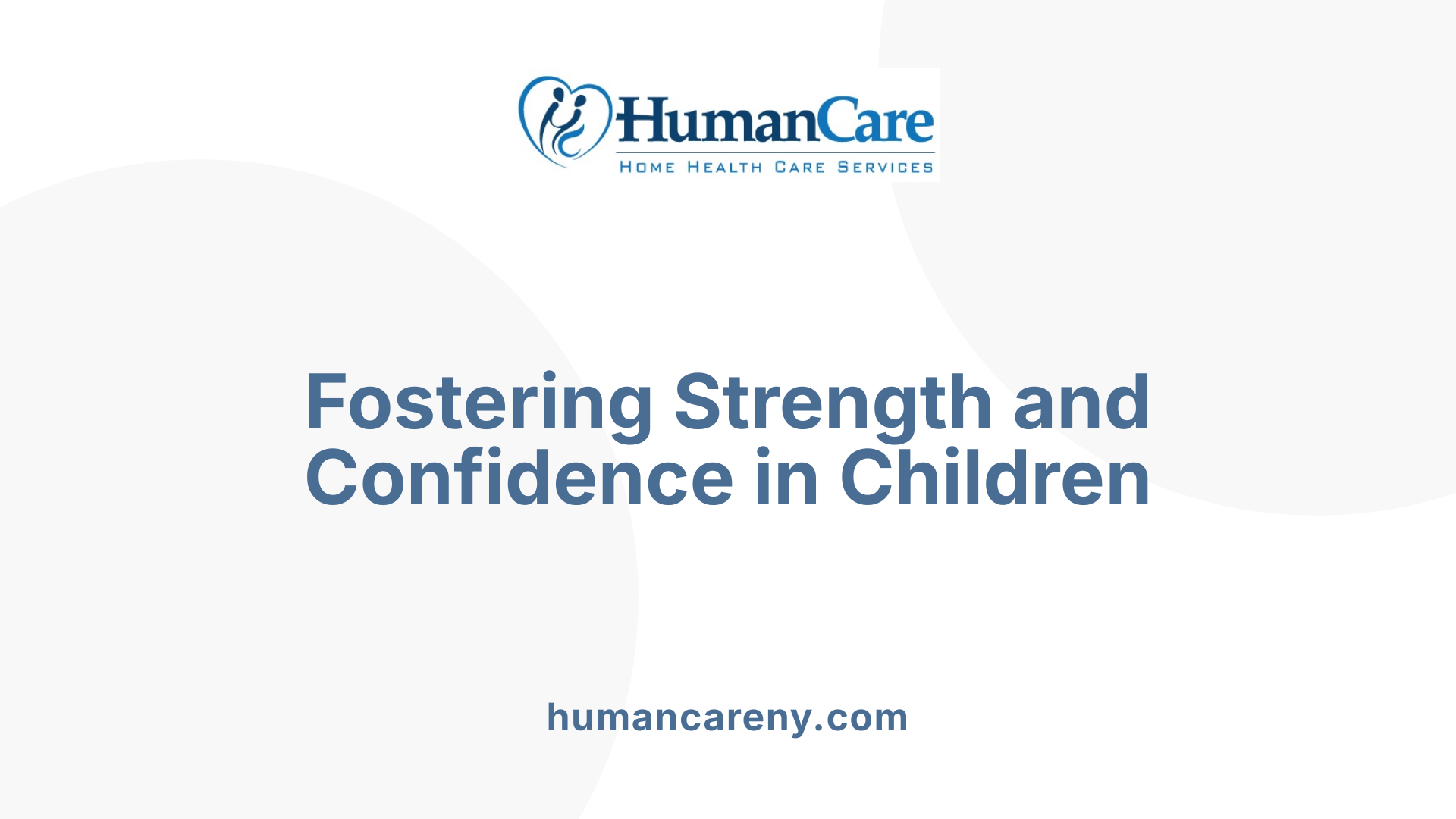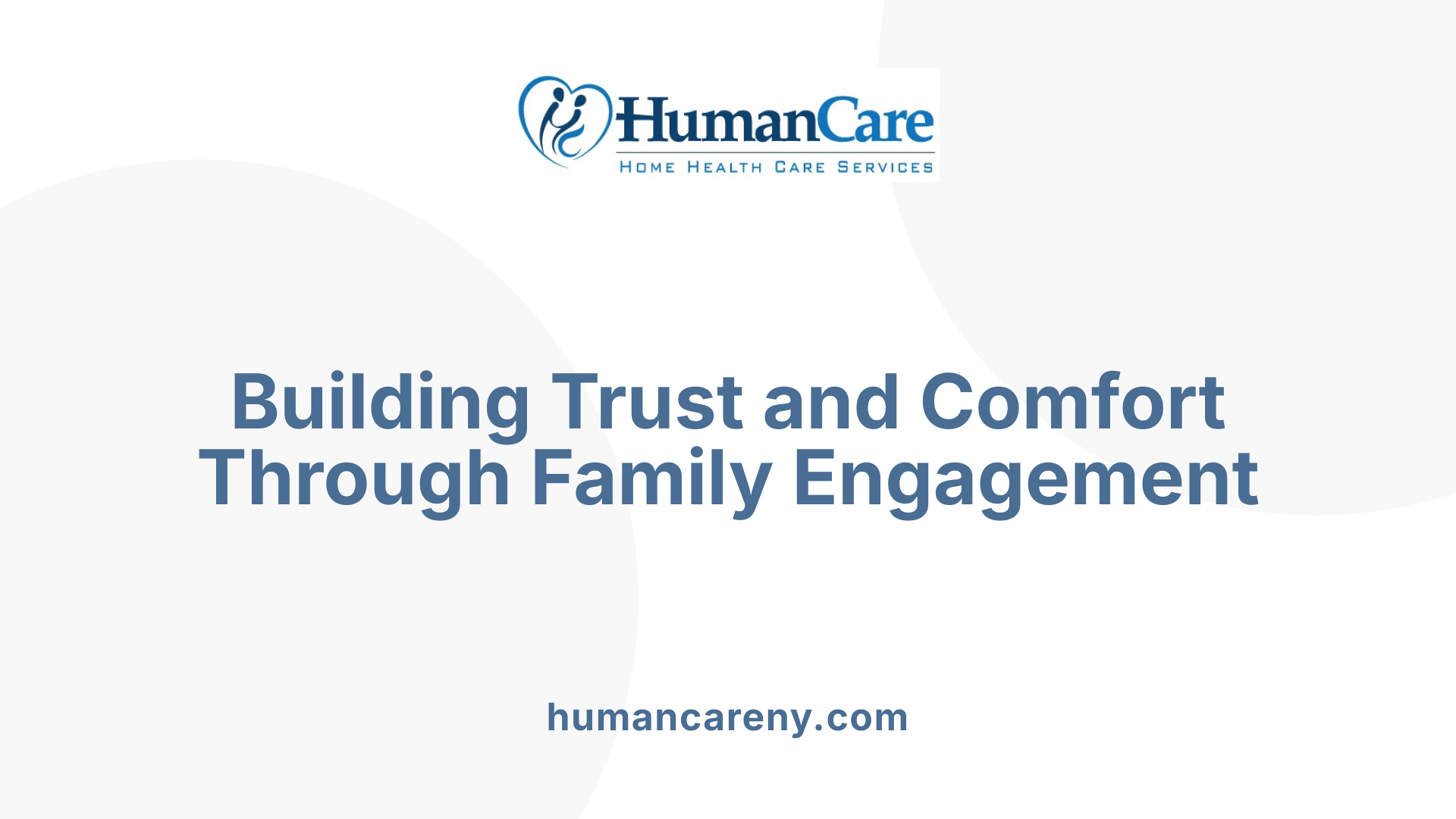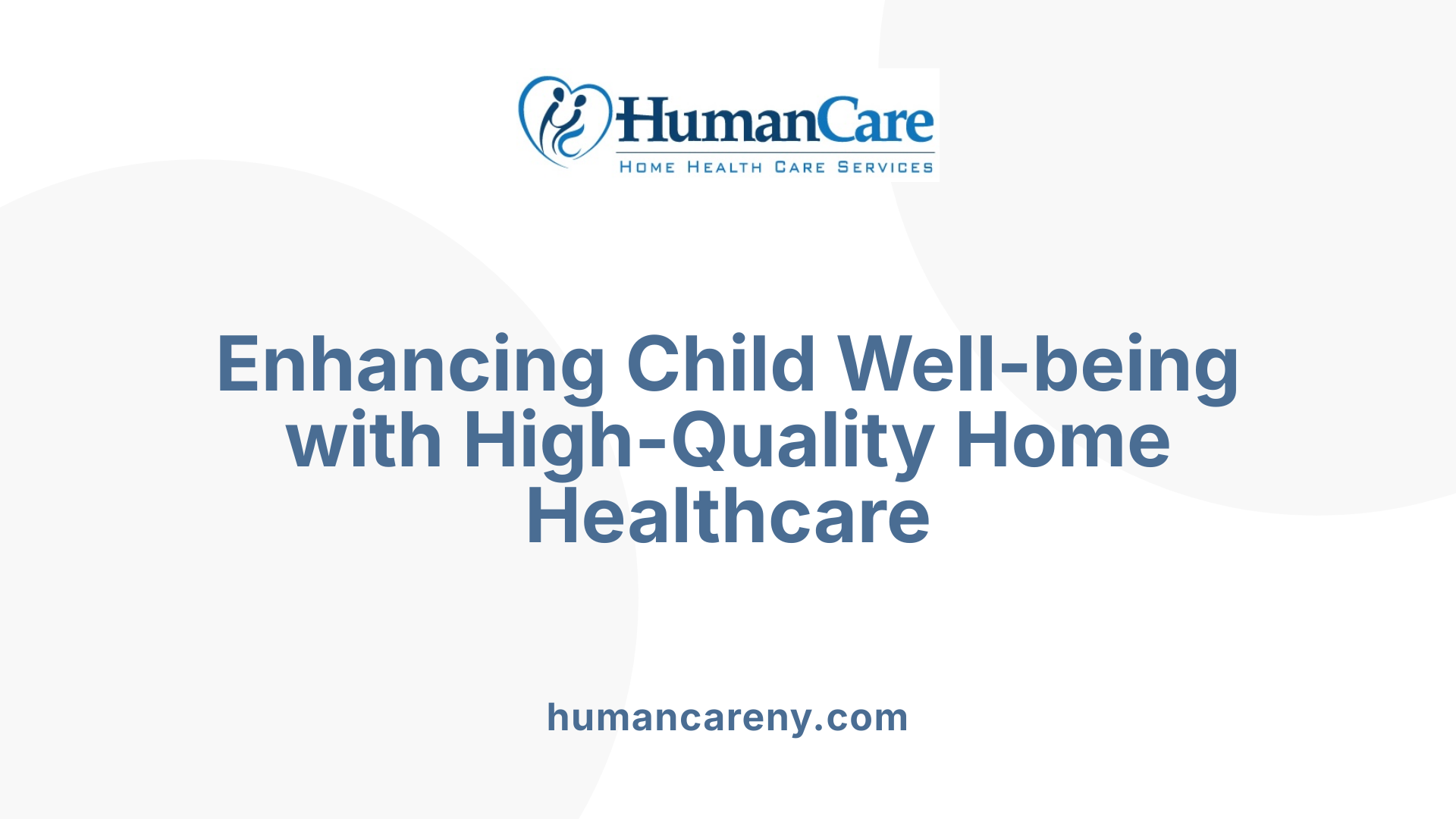Understanding the Power of Home Environments in Pediatric Emotional Well-being
Pediatric home care is transforming the way children with medical needs experience emotional and psychological health. By offering tailored, family-centered support in a familiar setting, it creates a nurturing environment that bolsters emotional resilience, reduces anxiety, and promotes holistic development. This article explores how quality pediatric home care enhances emotional wellbeing, supporting both children and their families.
Personalized Care in a Comfortable Setting

What are the benefits of pediatric home care on children's emotional wellbeing?
Providing healthcare within the familiar environment of home offers numerous advantages for a child's emotional health. Children often feel safer and more relaxed in their own space, which helps decrease anxiety and fear associated with hospitals and unfamiliar settings. This comfort is crucial for their emotional stability, especially when managing chronic illnesses or developmental needs.
Home care allows for care plans tailored to each child's unique medical and emotional needs. Personalized attention fosters a sense of control and security, nurturing emotional resilience. Family members are actively involved in daily routines and decision-making, which strengthens their bond and provides additional emotional support.
Trusting relationships with consistent healthcare providers further promote emotional security. Skilled pediatric professionals, offering therapies such as speech, occupational, and physical therapy, create a positive, encouraging atmosphere. Creative activities incorporated into home care, like art and music therapy, also help children express their feelings and develop coping strategies.
How does pediatric home healthcare support emotional and psychological health in children?
Home healthcare for children reinforces emotional and psychological well-being by creating a stable, predictable environment that fosters trust and security. The continuous presence of a caring, professional team helps children feel supported and understood, reducing the distress associated with medical treatments.
Family-centered approaches in home healthcare empower caregivers and involve them in the child's care routine, promoting consistency and emotional stability. Regular monitoring and early intervention by pediatric professionals help address emotional challenges promptly, preventing escalation.
Services provided extend beyond physical health, including emotional counseling and social support, which encourage confidence and independence. Furthermore, these services facilitate positive social interactions through group activities or connected therapies, bolstering emotional resilience.
Overall, pediatric home healthcare integrates medical treatment with holistic emotional support, creating an environment where children can thrive emotionally while managing their health effectively.
Building Emotional Resilience and Coping Skills
 Supporting the emotional well-being of children with home health care needs involves a combination of nurturing strategies and therapeutic activities. These approaches help children express their feelings, build resilience, and develop healthy coping mechanisms.
Supporting the emotional well-being of children with home health care needs involves a combination of nurturing strategies and therapeutic activities. These approaches help children express their feelings, build resilience, and develop healthy coping mechanisms.
One effective method is through the use of therapeutic activities, such as art, music, and play therapy. These activities serve as creative outlets, allowing children to explore and communicate their emotions in a safe and engaging way. For instance, art projects can help children visualize their feelings, while music and play therapy foster emotional expression and offer comfort. Incorporating these activities into daily routines encourages self-awareness and can significantly reduce feelings of frustration or sadness, promoting a more positive emotional state.
Teaching children coping strategies like mindfulness and relaxation techniques is another crucial component. Practices such as deep breathing, meditation, and progressive muscle relaxation help children manage stress and reduce anxiety caused by their medical conditions or the home care environment. Regular practice of these techniques can improve emotional stability, making it easier for children to navigate their daily experiences.
Supporting emotional expression and self-esteem is also vital. Family involvement in care plans creates a trusting environment where children feel safe to share their feelings. Celebrating small achievements and encouraging open communication bolster confidence and foster resilience. Additionally, connecting children with peers through group activities or virtual gatherings builds social skills and diminishes feelings of isolation.
In summary, a holistic approach that combines therapeutic arts, stress management skills, and emotional support can greatly enhance the emotional health of children in home care. These strategies not only address immediate emotional needs but also lay a foundation for long-term emotional resilience and well-being.
| Strategy | Activities | Benefits |
|---|---|---|
| Therapeutic Activities | Art, music, play therapy | Expression of feelings, confidence building, emotional release |
| Coping Techniques | Mindfulness, deep breathing | Stress reduction, emotional regulation |
| Emotional Support | Family involvement, social connections | Trust, self-esteem, resilience |
Implementing these approaches ensures children receive comprehensive support for their emotional health, fostering a better overall quality of life.
Family Involvement and Emotional Support
 Engagement of family members in care planning and daily routines plays a crucial role in supporting the emotional health of children receiving home healthcare. When families actively participate in managing medical routines and making treatment decisions, children perceive a sense of stability and reassurance. This involvement fosters trust and a feeling of partnership, which can significantly alleviate fears or anxieties related to their health.
Engagement of family members in care planning and daily routines plays a crucial role in supporting the emotional health of children receiving home healthcare. When families actively participate in managing medical routines and making treatment decisions, children perceive a sense of stability and reassurance. This involvement fosters trust and a feeling of partnership, which can significantly alleviate fears or anxieties related to their health.
Strengthening family bonds through shared activities like play, mealtime, or joint therapy sessions creates a nurturing environment. These shared moments inspire feelings of love, security, and belonging, promoting emotional resilience in children. When families spend quality time together, they build a supportive foundation that helps children cope better with their medical challenges.
Open communication between families and caregivers is vital for emotional wellbeing. Honest, consistent dialogue nurtures trust and ensures that children’s emotional needs are recognized and addressed promptly. Caregivers who listen and provide reassurance help children feel heard and understood, further stabilizing their emotional health.
Overall, the active participation of family members in daily care routines, combined with open communication, supports a secure and emotionally enriching environment. This approach not only promotes the child's emotional stability but also enhances overall family wellbeing, fostering resilience amidst ongoing medical needs.
| Aspect of Family Involvement | How It Supports Emotional Well-being | Additional Notes |
|---|---|---|
| Care planning participation | Provides a sense of control and partnership | Empowers families in decision-making |
| Shared activities | Strengthens emotional bonds and security | Includes play, therapy, and routines |
| Open communication | Builds trust and reassurance | Regular updates and honest dialogue |
| Family bonds through shared experiences | Enhances emotional resilience | Creates a nurturing, supportive environment |
| Access to support services | Reduces isolation and emotional burden | Includes therapy, community resources |
Supporting the emotional wellbeing of children through family involvement creates a positive cycle—empowering families, stabilizing children’s feelings, and fostering a healthy, nurturing environment that promotes resilience and long-term emotional health.
The Role of Specialized and Comprehensive Care

How does quality home healthcare improve emotional and developmental outcomes for children?
High-quality home healthcare plays a vital role in fostering emotional well-being and supporting developmental growth in children with medical needs. By tailoring care plans to each child's specific diagnosis and developmental stage, caregivers ensure that children receive appropriate therapies and interventions. These therapeutic activities, including physical, occupational, speech, and mental health support, provide opportunities for children to express themselves creatively and build essential skills.
Providing care in a familiar environment reduces confusion and distress, helping children feel safe and secure. This comfort level encourages active participation in daily routines and social interactions, which are crucial for emotional and social development. Moreover, consistent monitoring and early detection of emerging health or emotional issues allow for prompt intervention, minimizing setbacks and promoting stability.
Families benefit from a structured and supportive care approach, which alleviates caregiver stress and promotes healthy routines. As a result, children experience fewer hospital visits and less exposure to hospital-related anxiety, contributing further to emotional resilience. Overall, personalized, comprehensive care delivered at home not only manages complex health conditions but also creates a nurturing environment essential for positive emotional and developmental outcomes.
Minimizing Hospitalization and Promoting Emotional Comfort

How does quality home healthcare improve emotional and developmental outcomes for children?
Quality home healthcare plays a vital role in supporting the emotional and developmental well-being of children with medical needs. By providing personalized, consistent, and emotionally supportive care in a familiar environment, it helps reduce stress and anxiety that often accompany hospital visits.
When children receive treatment at home, they experience less disruption to their daily routines, which fosters a sense of normalcy and security. This stability supports emotional resilience and helps children feel more in control of their health.
Regular monitoring and early detection of health issues enable effective management of symptoms, reducing the need for emergency hospital visits. This not only improves physical health but also provides emotional reassurance to children and their families.
In addition, access to therapeutic activities like art, music, and play therapy allows children to express their feelings creatively, promoting emotional growth. Connecting with peers through group activities or virtual gatherings further diminishes feelings of isolation.
Moreover, reliable home healthcare services alleviate caregiver stress, fostering a calm and supportive atmosphere for children. The result is an environment that encourages social participation, emotional stability, and overall development.
| Aspect | Benefit | Additional Detail |
|---|---|---|
| Reduction in hospital visits | Less emotional distress and physical discomfort | Consistent in-home care reduces the need for hospitalization, preventing medical and emotional trauma |
| Exposure to germs | Lower risk of infections | Staying at home cuts down hospital-related exposure, which can be stressful and frightening |
| Routine stability | Promotes normalcy | Maintaining daily activities fosters confidence and emotional security |
This comprehensive, tailored approach in home healthcare not only addresses medical needs but also nurtures emotional health, creating a conducive environment for children to thrive.
Ensuring a Holistic Approach to Pediatric Well-being

How does quality home healthcare improve emotional and developmental outcomes for children?
Quality pediatric home healthcare plays an essential role in promoting both emotional and developmental growth. By offering personalized, consistent, and nurturing care within the comfort of the child's home, it helps reduce feelings of anxiety and fear often associated with medical environments. Children benefit from early detection of health issues through regular monitoring, which allows for prompt management of symptoms, ultimately minimizing hospital visits and associated stress.
Therapies like art, music, and play therapy provide creative outlets for emotional expression, aiding children in processing their feelings. Such support enhances emotional resilience and fosters social skills by encouraging participation in community activities and peer interactions.
Moreover, home care reduces caregiver stress and feelings of social isolation, creating a more positive emotional environment. Stable routines and familiar surroundings give children a sense of security, fostering confidence and emotional stability.
In essence, high-quality home healthcare establishes a supportive, stable environment that nurtures a child's emotional well-being and supports healthy developmental milestones. This comprehensive approach creates a foundation for resilience, social integration, and overall thriving.
Supporting Children's Emotional Well-Being in the Comfort of Home
Pediatric home care plays a vital role in nurturing emotional well-being for children with medical and developmental needs. By providing a safe, familiar environment, personalized care, and comprehensive therapeutic support, it helps children establish emotional security, build resilience, and develop confidence. Family involvement and continuous engagement with healthcare professionals foster trust and stability, promoting healthier long-term outcomes. As the healthcare landscape evolves, prioritizing emotional support within pediatric home care settings will remain essential to enhancing the quality of life for children and their families.
References
- Supporting Emotional Well-being in Children with Home ...
- Caregiver and Provider Experiences of Home Healthcare ...
- Unlocking the Benefits of Pediatric Home Health Services
- Home Care for Children in Need
- Understanding the Long-Term Benefits of Pediatric Home ...
- Understanding the Long-Term Benefits of Pediatric Home ...
- The Importance of Pediatric Mental Health
- Caregiver and Provider Experiences of Home Healthcare ...
- Caregiver and Provider Experiences of Home Healthcare ...
- The Role of Pediatric Home Care in Family Support



